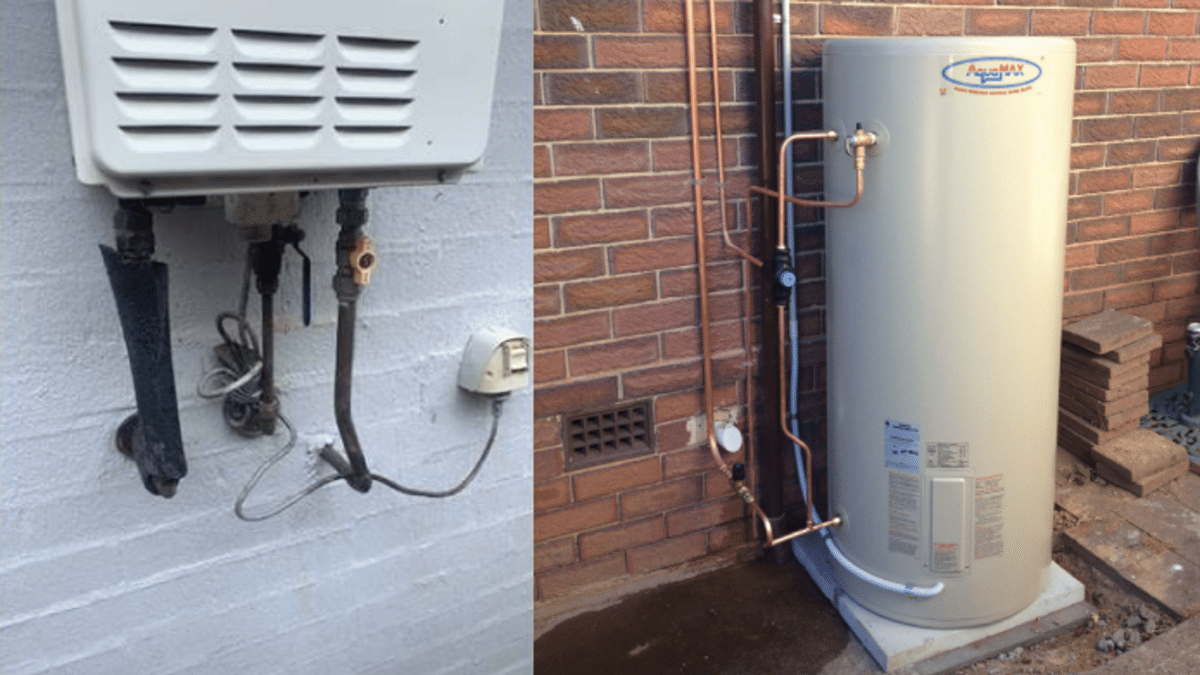Water heaters provide one of the most beneficial (and comforting) resources for your home: hot water! Without hot water, you and your family will have to suffer much discomfort, not to mention a severe downgrade in hygiene.
If we look at the signs that a water heater is coming to the end of its lifespan, it’s not difficult to notice that certain components tend to wear out. These can’t always be replaced or repaired, which calls for a full hot water system replacement Brisbane companies can handle for you. Here’s how you can know whether it’s time to replace your hot water system at home.
Contents
8 Symptoms of a Failing or Broken Hot Water System that Needs Replacing
Rust
Accumulated rust on your hot water system indicates that moisture is somehow seeping through the device. Over time, there will be a rust build-up which causes its own damage, but more importantly, your device is doing something it shouldn’t—leaking. If you do notice a significant amount of rust on your device, call a plumber to inspect it. They will be able to tell you if it can be repaired, or if it needs replacing.
Mould
Mould is similar to rust, in that it accumulates more and more over time. Mould and rust often go together, but sometimes you’ll notice mould before you see any rust (which is more severe). Mould will occur because more than likely, your hot water system is locked up in a stuffy area with limited airflow. Water and no airflow usually result in mould, which is a sure sing there’s water where there shouldn’t be.
Leaking
Sometimes water leaks are more visible. Water puddles, dripping, or seeping water can be noticed because your hot water system is compromised in some way. Depending on the age of your device, you may need to replace it, or you can claim on its warranty. Either way, call a plumber to check it out and advise you on what your options are.
Banging
Ever noticed a banging sound coming from your hot water system when you turn a tap on or off? This is usually a sign that one or more components on your hot device are not functioning properly, or that the system is an old one and in need of replacing. Banging from the device is always an urgent cause for alarm, so keep a good plumber’s number on hand.
Hot Water Shortage
Not getting as much hot water as you used to also indicates that something is amiss. When hot water becomes less than you’re accustomed to, it means that the device is straining to heat up the water, which is what a hot water system is all about. If it’s not working hard to provide your home with hot water, it may be time to replace it.
Damage
Hot water systems are designed to heat up water and then allow more water inside to heat up again. The water that fills the tank is obviously cold, meaning your device is changing temperatures all the time. This can cause cracking over time, even though this is rare. Sometimes the damage on a hot water system is painfully obvious. If you see any cracks, call a plumber out to investigate.
Steam
When you run hot water into your bath or your kitchen sink, steam is a good thing. You want to see that steam because it indicates that you have hot water to wash your dishes or take a shower. But steam should not occur anywhere near your hot water system. If you see steam coming out of yours, it could mean that the device is somehow compromised.
Whistling
Whistling or hissing are other sounds your hot water system might make, signaling that it’s time for an inspection. This is especially true if you hear these sounds after flushing a toilet, which is usually when this problem occurs. If you’re in a large house, listen out for this sound by flushing your toilet and moving towards the hot water system. If there’s a loud whistling or hissing sound, get your plumber on the line.
No Hot Water System Lasts Forever
Something else to remember is that hot water systems do break down over time. However, this shouldn’t happen after a few years, since most hot water devices are guaranteed to last for at least 7 to 10 years. Others may last up to 25 years if you’re lucky. You may never have thought to check yours, but it’s a good idea to inspect it yourself once a year so that you aren’t caught off guard one day.
Final Thoughts
This is a good checklist for inspecting your hot water system yourself. A plumber is ultimately the best advisor, because they can tell you what’s wrong, what the cause has been, and whether you need to replace your device or if it’s still good enough to repair. Keep a good plumber’s number on your phone and call him if you’re in doubt about the integrity of your hot water device.

